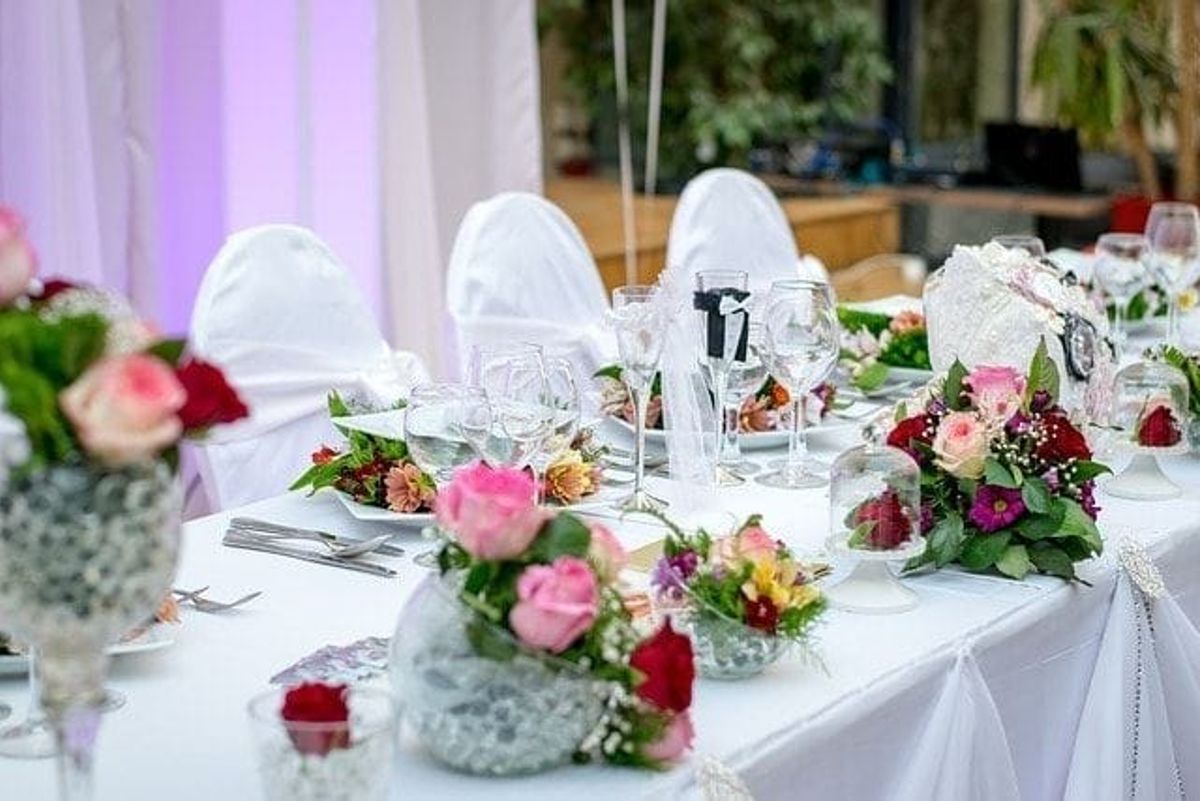Events Marketing Plan: Creating an Event Strategy

Planning a successful event often requires a well-thought-out strategy that can significantly impact its outcome.
Quick Summary
A successful events marketing plan hinges on a strategic approach that involves logistics, audience understanding, and clear goals. Key components include establishing a detailed marketing timeline, budgeting resources effectively, and utilizing social media to engage potential attendees. Post-event strategies, such as surveys and content sharing, help maintain interest and improve future events. Overall, flexibility and continual refinement based on attendee feedback are essential for achieving
Whether you're organizing a conference, a product launch, or a community event, an effective events marketing plan can be crucial for engaging your audience, creating meaningful experiences, and achieving your objectives.
A well-executed strategy can ensure that your event reaches the right people, delivers the intended message, and provides value for all participants.
Ready to Grow Your Business?
Get a custom strategy tailored to your goals.
But what key components contribute to a successful event strategy?
A successful event marketing plan may include logistics like choosing a venue, coordinating with vendors, and ensuring a seamless experience for attendees.
This strategy can attract participants and foster community and excitement around your event.
This often involves creating an events marketing timeline, budgeting appropriately, and allocating resources to ensure each phase of the event is executed effectively.
Remember, while this guide offers some ideas, it's essential to conduct your own research to tailor any strategies or tips to your business needs.
Why an Events Marketing Plan Matters

In a digital world, event marketing can still be a powerful way to connect with your audience, build brand awareness, and engage with customers. If you're hosting a corporate event, product launch, or virtual event, having a solid events marketing plan can boost the event's success.
An events marketing strategy isn't just about promoting an event; it's often about managing the entire event lifecycle from initial planning to post-event surveys.
The right approach can generate buzz, sell more tickets, and keep attendees engaged before and after the event.
Your Event Marketing Strategy
An events marketing plan often with a clear events marketing strategy. This means understanding the event's goals, identifying your target audience, and how to reach them.
Clear Event Goals
The first step in creating an events marketing plan is to define the key goals. Are you promoting a new product, increasing brand awareness, or selling more event tickets?
Knowing what the event is about can inform the marketing strategy.
Ready to Grow Your Business?
Get a custom strategy tailored to your goals.
Having specific, measurable goals also can help you measure the event's success post-event. Whether it's social media engagement, ticket sales, or new leads generated, clear goals can make a big difference in event marketing.
The Target Audience
One of the key components of any events marketing strategy is knowing your audience. Understanding who your audience is— their demographics, interests, and needs—can help you tailor your messages, promotional materials, and event experiences to better meet their expectations.
Previous events can give you valuable insights into attendee behavior and engagement.
Events Marketing Timeline
A detailed timeline can be crucial for an events marketing plan. Event organizers should start early and use a timeline to break down the event marketing process into each phase, from pre- event promotion to post-event marketing.
Pre Event Promotion
Before the event itself, one needs to build the hype. Consider using social media platforms to post event teasers, share event details, and engage with your interested audience. An event website with an agenda, keynote speakers, and event dates can get potential attendees engaged.
Consider offering early bird tickets or special offers to previous attendees to generate buzz. Email marketing can be another great way to keep the audience updated on event progress. Timely emails can increase event attendance and get more registrations.
Post Event Marketing
After the event, it can be important to do some good marketing to keep the buzz alive and leave a lasting impression. Consider sharing content from the event, photos, videos, and post-event surveys to gather feedback and insights. Highlight the best moments from the event attendees and use that content to promote the next event.
Also, consider capturing data through post-event surveys and analyzing the results to see what worked and what didn't in your event's marketing.
Budgeting for an Events Marketing Plan
An often overlooked but important part of a successful events marketing plan is the event marketing budget. While event planners often focus on creating great content or securing a big venue, the success of the marketing efforts is often heavily dependent on the resources.
Resource Allocation
Breaking down the event marketing budget into specifics, such as social media marketing, email marketing, promotional materials, and event management software, can ensure comprehensive coverage. A well-allocated budget can ensure there's enough money to promote the event through the right marketing channels and tools to measure attendee engagement.
Remember, previous events can be a guide. Look at where the budget was spent for previous events and how that translated to results. Also, consider leaving some room in the budget for last-minute expenses or unexpected promotional opportunities.
Ready to Grow Your Business?
Get a custom strategy tailored to your goals.
Partnerships and Sponsors
Another way to stretch the event marketing budget is by forming partnerships or securing sponsors. Event partners and sponsors can help offset costs and promote the event through their own marketing channels. Partnering with relevant brands or influencers can help one reach a larger audience.
Social Media Engagement
Platforms like Instagram, X, and LinkedIn are often key to reaching existing and potential attendees and building hype for the event.
Social Media Posts and Event Pages
Before the event event, marketers can generate interest through regular social media posts and updates. Consider creating an event page or hashtag to house all the content. Consider sharing sneak peeks, interviews with keynote speakers, or behind-the-scenes content to increase engagement.
During the event, live updates and interactive content like polls or Q&A sessions can keep attendees engaged and increase their overall event experience. Sharing user-generated content from event attendees or attendee engagement activities can create a sense of community and encourage others to attend future events.
Post Event Engagement
After the event, consider continuing to engage with attendees through post-event marketing. This may be sharing highlights from the event, thanking event attendees, and gathering feedback through post-event surveys. These actions can strengthen relationships and provide valuable insights for future events.
Also, by continuing to use the event hashtag or posting follow-up content, you can keep the event at the forefront of potential attendees' minds for future events.
Measuring Your Event Marketing Plan

Finally, no event marketing plan is complete without measuring its success. One should measure the results of all marketing activity, whether it's through social media metrics, attendee surveys, or overall ticket sales.
Using Data to Improve Future Events
Different tools can give you data on how successful the marketing was at driving engagement and ticket sales. Reviewing which channels worked best, where the most engagement happened, and how the marketing timeline performed can inform planning for future events.
Don't forget to look at both qualitative and quantitative feedback. Comments from attendees and their experiences can be just as valuable as hard data. This process of refining and adjusting based on attendee feedback and measurable metrics can mean that each next event can build on the last.
Conclusion: Event Marketing Plan
A successful events marketing plan often requires strategy, budget, and engagement with both potential and past attendees. Each event is different, but the basics of targeting the right audience, building a timeline, using social media, and post-event data can guide the way.
The key to events marketing is often to be flexible and continually improve on previous experiences, whether in-person or virtual events. Every part of the marketing plan can be part of the event, so it's often a vital tool for event planners and marketers.
With the right planning and tools in place, the possibilities are there. Whether one want to create buzz for a corporate event, drive ticket sales, or simply connect with an audience, a solid event marketing plan can make all the difference.

Ready to Grow Your Business?
Get a custom strategy tailored to your goals.
Frequently Asked Questions
How far in advance should I start marketing my event?
Start your event marketing 8-12 weeks before the event date for optimal results. Create a detailed timeline breaking down promotional phases: early announcements and save-the-dates at 8-12 weeks, intensive promotion at 4-6 weeks, and final push campaigns in the last 2 weeks. For larger conferences or annual events, begin marketing 3-6 months ahead. Early planning allows time for partnership development, content creation, and building sustained audience engagement across multiple marketing channels.
What percentage of my event budget should be allocated to marketing?
Allocate 15-25% of your total event budget to marketing activities for maximum impact. Break this down into specific categories: 40% for digital advertising and social media, 25% for content creation and promotional materials, 20% for email marketing platforms and tools, and 15% for partnership activations. For new events or competitive markets, consider increasing to 30%. Track ROI from previous events to optimize future budget allocation and ensure adequate coverage across all promotional channels.
Which social media platforms work best for event marketing?
LinkedIn excels for B2B conferences and professional events, reaching decision-makers and industry professionals. Instagram works best for lifestyle, entertainment, and visual events through stories and reels. Facebook provides robust event pages and targeted advertising for community events. Twitter/X offers real-time engagement and hashtag campaigns. Choose platforms based on your target demographic: LinkedIn for professionals, Instagram for millennials/Gen Z, and Facebook for broader community reach. Use 2-3 platforms effectively rather than spreading efforts too thin.
How do I measure the success of my event marketing campaign?
Track key metrics including registration numbers, website traffic, social media engagement rates, and email open/click-through rates. Use UTM codes to measure which channels drive the most registrations. Monitor hashtag usage, mentions, and user-generated content during the event. Post-event, analyze attendance rates, Net Promoter Scores from surveys, and lead generation numbers. Compare ROI across marketing channels to identify the most effective strategies. Set specific, measurable goals pre-event to benchmark success accurately.
What are the most effective pre-event promotional strategies?
Early bird pricing creates urgency and drives initial registrations 6-8 weeks before the event. Speaker announcements and agenda reveals build anticipation through valuable content previews. Email sequences nurture leads with event updates, behind-the-scenes content, and countdown campaigns. Social media teasers, including speaker interviews and venue tours, generate buzz. Partner cross-promotion expands reach to relevant audiences. Offer exclusive content or networking opportunities to previous attendees. Create an event website with clear value propositions and easy registration process.
How can I use post-event marketing to promote future events?
Share event highlights through photos, videos, and attendee testimonials across social media platforms within 48 hours. Send thank-you emails with exclusive content like presentation recordings or photo galleries. Conduct post-event surveys to gather feedback and testimonials for future marketing. Create case studies showcasing event success and ROI for sponsors. Maintain engagement through follow-up content and community building. Use positive feedback and success metrics in marketing materials for next year's event, creating a cycle of social proof and anticipation.
What partnerships can help reduce event marketing costs while expanding reach?
Collaborate with industry associations and professional organizations for member discounts and promotional support. Partner with complementary businesses for cross-promotion opportunities and shared marketing costs. Secure media partnerships with industry publications for coverage and advertising trades. Work with local businesses and venues for community event support. Engage micro-influencers and thought leaders for authentic endorsements. Develop sponsor relationships where partners promote through their channels in exchange for visibility. These partnerships often provide more authentic reach than paid advertising alone.
Related Resources
Calculators
Pricing Guides
Key Terms
Marketing strategy that promotes brands, products, or services through hosted or sponsored in-person or virtual events.
Attendee AcquisitionThe marketing strategies and tactics used to attract and convert target audiences into event registrants.
Event Experience DesignHolistic approach to creating memorable, purposeful attendee journeys at events.
Attendee Acquisition StrategyPlanned approach to attracting and registering target audiences for events.
Post-Event StrategyPlanned follow-up activities that extend event value and drive business outcomes.
Related Articles

10 Tips for Building a Marketing Strategy for an Event
Learn 10 essential tips to create an event marketing strategy and boost your events attendance and engagement.

10 Steps on How to Develop a Marketing Plan for Your Next Event
Events are a mix of fun and challenges. Whether it's a corporate seminar, product launch, or a big celebration, the key to a successful event is in the planning and execution.

The Complete Checklist for Promotion of Events
Effective event promotion is crucial for ensuring the success of any event, whether it's a small local gathering, a large corporate conference, or a virtual seminar. Strategic event promotion helps in